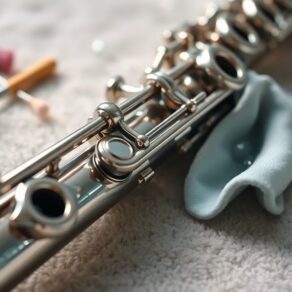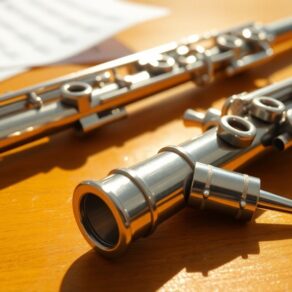To keep your pads in top shape, start with regular inspections. Check for wear, cracks, and discoloration each month. Clean them weekly using mild detergents; a vinegar solution works well too. Always air-dry your pads away from direct sunlight. Choose sustainable materials to minimize waste, and look for recycling options for used pads. Watch for signs it's time to replace them, like persistent odors or discomfort during use. Professional maintenance can also enhance performance. By following these tips, you'll guarantee your pads last longer and perform better. There's even more to explore to improve your pad care routine.
Key Takeaways
- Inspect pads monthly for wear, chips, or unusual noises; increase frequency for heavy use to catch issues early.
- Clean pads weekly using mild detergents or a vinegar-water mixture; soak for 20-30 minutes and air-dry away from sunlight.
- Replace pads when visible wear, persistent odor, or discomfort occurs, as these indicate decreased effectiveness.
- Choose sustainable, eco-friendly pads and dispose of them using compostable methods to reduce environmental impact.
- Consider professional maintenance services for thorough cleaning and inspections to prolong pad lifespan and ensure optimal performance.
Regular Inspection of Pads
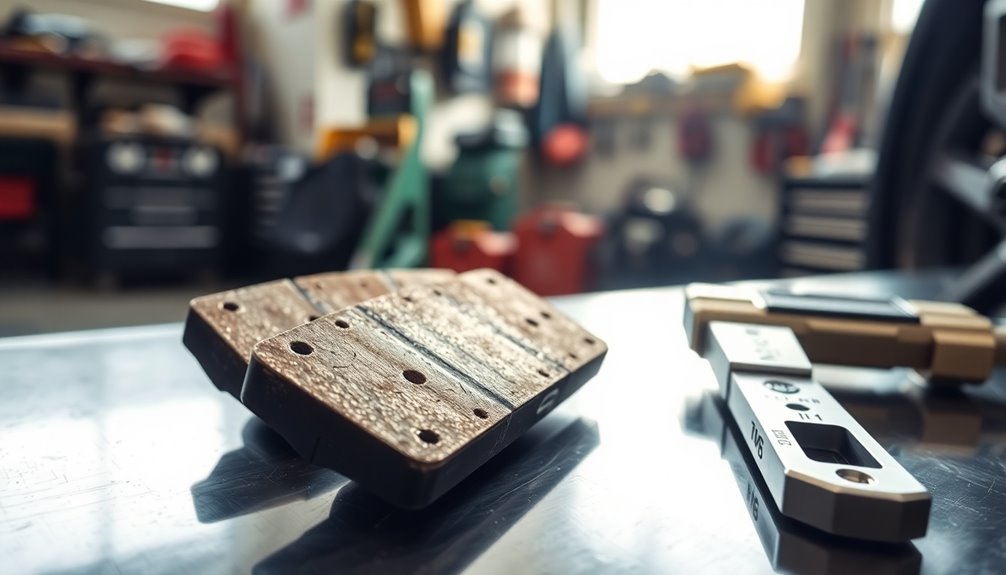
Regularly inspecting your pads is essential for maintaining their effectiveness and longevity. By making this a part of your routine, you're actively ensuring that your pads remain in top shape. You should check them at least once a month, but if you use them frequently, consider increasing the inspection frequency. This way, you can catch any wear or damage before it affects performance.
When you inspect your pads, look for signs of wear such as cracks, tears, or discoloration. These indicators can greatly impact pad durability. If you notice any of these issues, it's time to replace them. Remember, the condition of your pads directly influences your overall experience, whether you're at home or in a community setting.
Don't forget to pay attention to the edges and surfaces, as these areas often wear down first. A small chip or a rough spot can lead to bigger problems down the line.
Additionally, if you hear any unusual noises while using your pads, don't ignore them. They can signal that something's not right. Regular maintenance and flute pad care are key to ensuring optimal performance and extending the life of your instrument.
Proper Cleaning Techniques
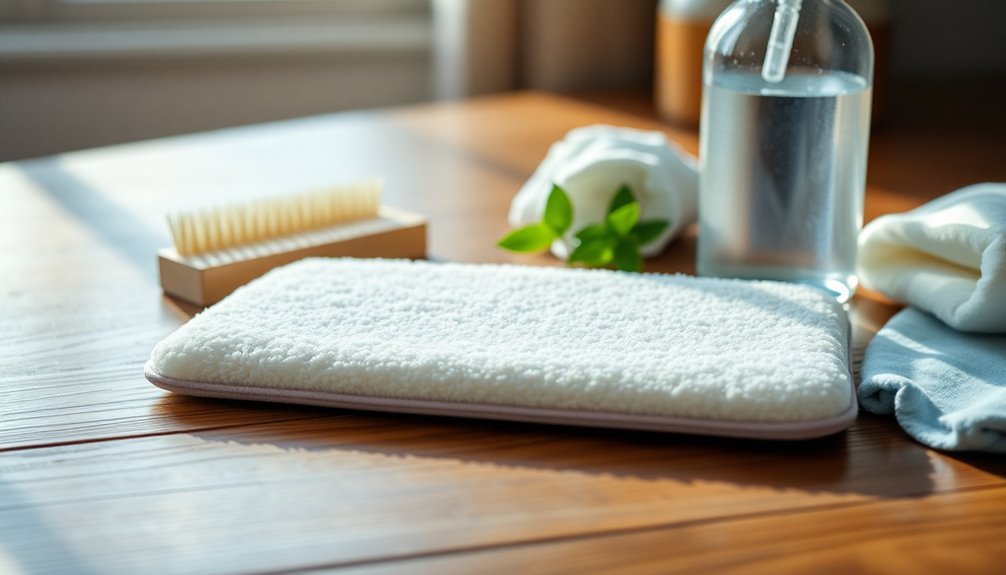
How often do you think about the cleanliness of your pads? Keeping your pads clean is essential not just for performance, but also for your health. Regular cleaning can prevent the buildup of dirt and bacteria, which can lead to damage and odors. Aim for a cleaning frequency that suits your usage—weekly for regular use, or more often if you notice any signs of wear or dirt.
When it comes to cleaning products, choose ones that are gentle yet effective. Look for mild detergents free from harsh chemicals. Avoid bleach or fabric softeners, as these can degrade the pad material over time. If you prefer natural options, a mixture of vinegar and water can work wonders. Just remember to test any new product on a small area first.
To clean your pads, start by removing any loose debris. Then, soak them in warm water mixed with your chosen cleaning product for 20-30 minutes. This helps loosen any stubborn grime. Additionally, incorporating a flute cleaning kit into your routine can enhance the overall maintenance of your instrument.
After soaking, gently scrub the pads with a soft brush or cloth, paying special attention to any stained areas. Rinse thoroughly under running water until the water runs clear. Finally, air-dry your pads away from direct sunlight to prevent fading and damage.
Environmental Considerations
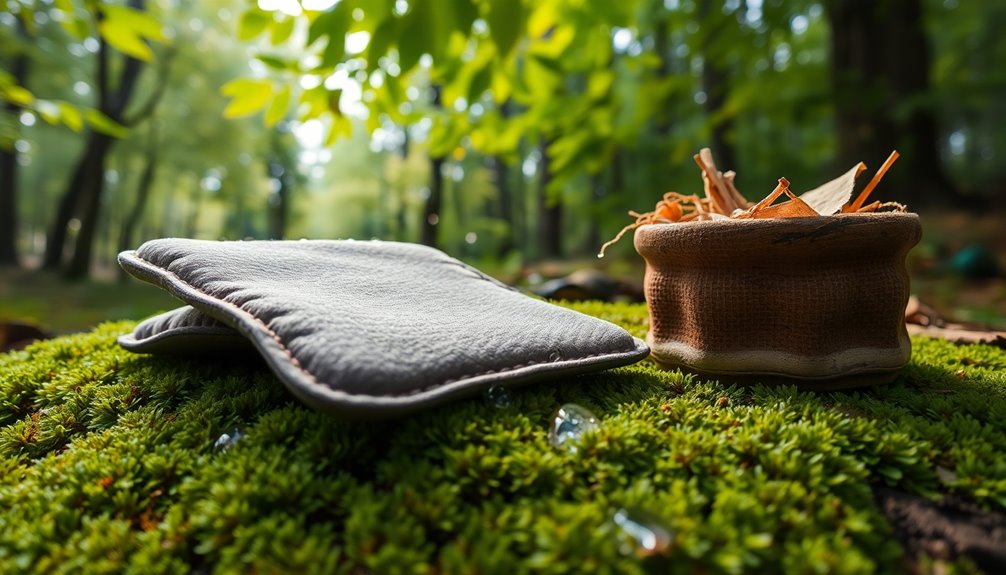
Maintaining the cleanliness of your pads isn't just beneficial for their longevity and your health; it also plays a role in environmental sustainability. By choosing pads made from sustainable materials, you contribute to reducing waste and minimizing your carbon footprint. Many brands now offer eco-friendly options, such as organic cotton or bamboo, which are biodegradable and less harmful to the environment.
When you opt for these materials, you're making a conscious choice to support practices that are kinder to our planet. Additionally, using essential flute key oil can help maintain your pads and prolong their lifespan, further reducing waste.
In addition to selecting sustainable materials, how you dispose of your pads is vital. Traditional disposal methods can lead to significant landfill waste, as many pads take years to decompose. Instead, consider eco-friendly disposal methods. Some brands provide compostable pads, allowing you to dispose of them in a way that returns nutrients to the earth.
If composting isn't an option for you, look for recycling programs that accept used pads.
It's also helpful to educate others about the importance of sustainable practices in pad care and disposal. By sharing your knowledge, you foster a sense of community around environmental responsibility. Together, you and your friends can make informed decisions that not only benefit your health but also contribute to a healthier planet.
Signs for Replacement
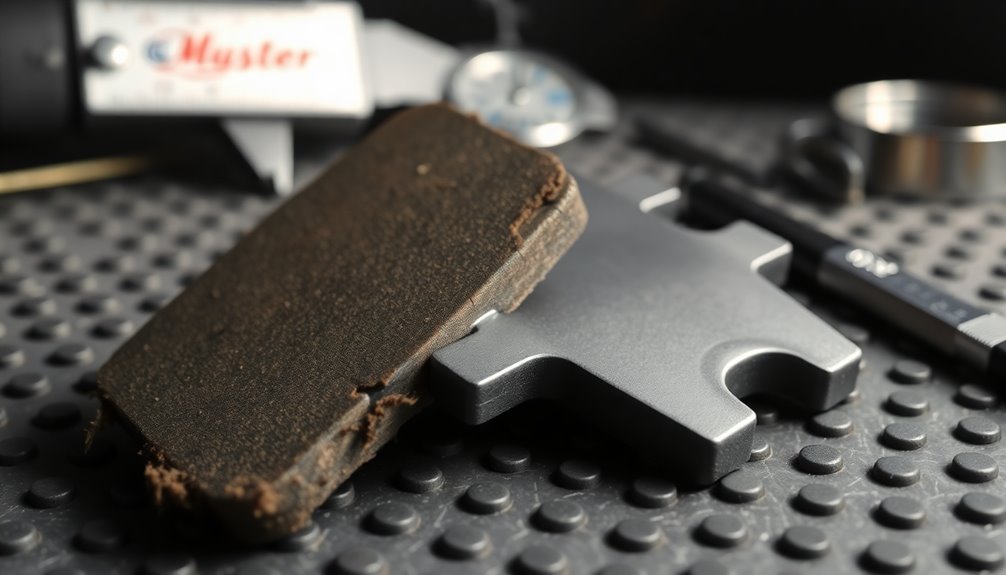
When it comes to guaranteeing ideal hygiene and comfort, knowing the signs that indicate it's time to replace your pads is important. Regularly monitoring your pads for specific indicators can help you maintain their effectiveness and your overall well-being.
Here are some key signs of pad wear that you shouldn't ignore:
- Visible wear and tear: Look for fraying edges, holes, or significant discoloration.
- Odor: A persistent, unpleasant smell can signal that your pads are no longer effective at absorbing moisture or have developed bacteria.
- Discomfort: If you start feeling irritation or discomfort while using your pads, it's a clear sign they may need replacing.
- Decreased effectiveness: If you notice that your pads aren't absorbing fluids as well as they used to or are leaking, it's time to think about a replacement.
Understanding your replacement frequency is critical. Depending on your usage and the materials involved, you may need to replace pads monthly, bi-monthly, or even sooner if you notice any of the signs above. Additionally, using high-quality materials can help prolong the lifespan of your pads and enhance their performance.
Staying in tune with your pad wear not only enhances your comfort but also supports your hygiene. By being proactive about replacements, you can make sure that you always feel your best, both physically and emotionally.
Professional Maintenance Services
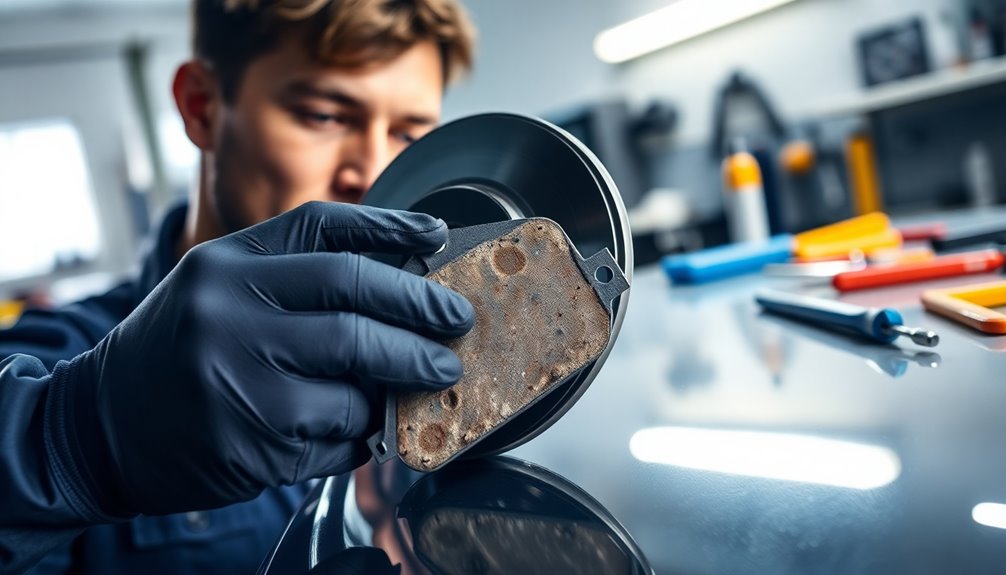
While regular pad replacements are essential, engaging professional maintenance services can elevate your hygiene standards even further. You might think you can handle pad care on your own, but professionals bring expertise and a level of thoroughness that's hard to match. They understand the specific needs of your pads and can implement effective cleaning techniques that guarantee maximum hygiene.
Professional cleaning services often operate with a tailored approach, evaluating your individual requirements and creating customized maintenance schedules. This means you won't have to worry about forgetting to replace or clean your pads, as the service will handle it for you.
It's a great way to maintain consistency in hygiene, giving you peace of mind that your environment is always clean and safe. Additionally, using professional services can enhance your sense of belonging within a community that values health and cleanliness. When you prioritize hygiene by investing in expert care, you're not just looking after yourself; you're contributing to a healthier environment for everyone around you. Regular inspections and cleaning of the pads are necessary to maintain optimal performance and prevent issues like sticky keys.
Frequently Asked Questions
How Often Should I Replace My Pads for Optimal Performance?
To guarantee peak performance, you should replace your pads based on their lifespan and performance indicators.
Typically, pads last anywhere from 20,000 to 40,000 miles, but this can vary depending on your driving habits.
Keep an eye out for signs like squeaking noises or reduced braking responsiveness.
If you notice these indicators, it's time to think about a replacement.
Regular checks will help maintain safety and performance, so you can drive with confidence.
Can I Use Bleach to Clean My Pads?
Can you really trust bleach to clean your pads?
While it might seem like a quick solution, bleach can damage the materials and affect performance.
Instead, consider using gentler pad cleaning alternatives, like vinegar or mild soap.
These options can effectively freshen your pads without the harsh chemicals.
What Materials Are Most Pads Made From?
Most pads are made from a combination of synthetic materials, like plastic and polyester, and absorbent substances such as cotton or wood pulp.
If you're looking for eco-friendly options, consider pads made from organic cotton or bamboo. These materials are biodegradable and gentler on the environment.
Are There Specific Pads for Different Climates?
Choosing the right pad is like picking the perfect outfit for changing weather.
You need to take into account climate considerations when selecting pad materials. For humid areas, breathable fabrics can help keep you cool, while warmer climates might benefit from thicker pads to absorb moisture.
By understanding your environment, you can guarantee your comfort and well-being, making you feel more at home in any situation.
It's all about finding that perfect match for your needs.
How Do I Store Pads When Not in Use?
When you're not using your pads, proper storage is key.
You'll want to keep them organized in storage containers that are clean and dry. Consider using labeled bins to separate different types, making it easier to find what you need later.
Avoid exposure to moisture and direct sunlight, as this can damage the pads.
Conclusion
Taking care of your pads is essential for performance and longevity. Did you know that properly maintained pads can last up to 50% longer than neglected ones? Regular inspections and proper cleaning can make a significant difference. Remember to take into account environmental factors and be aware of the signs that indicate replacement. If you're unsure, don't hesitate to call in professional maintenance services. Prioritizing pad care not only enhances safety but also saves you money in the long run.




